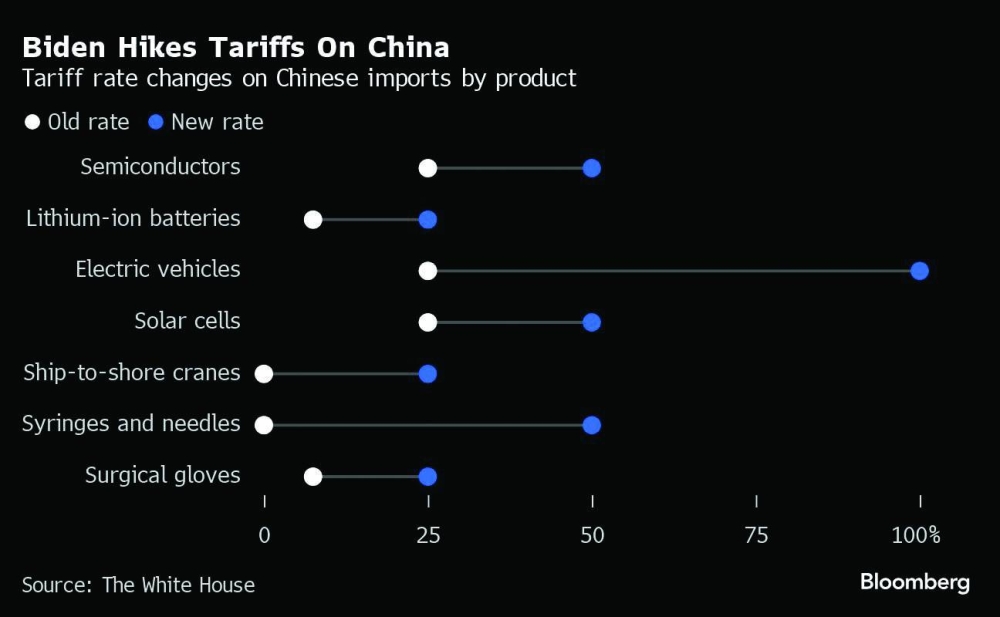
China blasted the Biden administration’s move to increase US tariffs on a wide range of Chinese imports, vowing to take its own action, without giving specifics.
“China will take resolute measures to safeguard its own rights and interests,” the Ministry of Commerce said in a statement on Tuesday. “The US should immediately correct its wrong actions and cancel the additional tariff measures against China.”
President Joe Biden is hiking tariffs on imports from China including semiconductors, solar cells, and critical minerals, with rates ranging from 25% for batteries to 100% for electric vehicles. The announcement was the culmination of a review of predecessor Donald Trump’s tariff increases — none of which were rolled back.
China called the additional tariffs “political manipulation,” with the move coming ahead of US elections this year.
In response to Trump’s tariff hikes from 2018 onwards, Beijing often attempted a tit-for-tat approach — trying to match the size and scope of US measures. But analysts expect a more limited response this time.
“Beijing’s direct retaliation against the US will avoid sharp escalation,” predicted Michael Hirson, a former US Treasury official who now heads China analysis at 22V Research. “Actions that lash out at prominent US firms or ramp up supply-chain restrictions, such as limiting exports of critical minerals, would hurt Xi’s efforts to shore up domestic and international confidence in China.”
President Xi Jinping in recent months has led efforts to bolster waning foreign investment in China. Hirson added that “China’s leadership will also seek to avoid actions that make China the centre of the US presidential campaign.”
US measures announced are themselves limited — which may help to contain Beijing’s response, according to Tobin Marcus and Chutong Zhu at Wolfe Research in New York. Biden’s tariff hikes only amount to an 8% increase in “total exposed import volume” from China, and the phase-in periods “will mitigate impact,” they wrote in a note.
“We expect there will be some Chinese response, but that Beijing will aim for proportionality, which means the US fallout should be limited,” Marcus and Zhu wrote.
Biden is trying to balance looking tough on China and vowing to protect US jobs without destabilising the domestic economy or inflaming inflation.
Last month, he vowed 25% tariffs on Chinese steel and aluminium that were largely toothless, as the Asian nation sells little of either metal to America.
For her part, Treasury Secretary Janet Yellen on Monday said, ahead of the tariff announcement, that “hopefully we will not see a significant Chinese response — but that’s always a possibility.”
